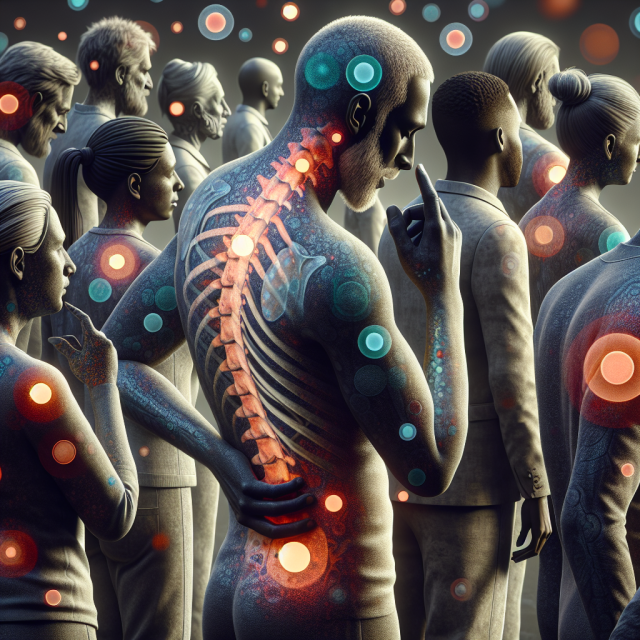
Living with chronic pain can feel like carrying an invisible weight that affects every part of your life. For caregivers, it can be hard to truly understand what a loved one is going through. By exploring the symptoms of chronic pain, you can better understand how this condition impacts daily life and find ways to offer meaningful support.
Table of Contents
Introduction
Chronic pain isn’t just about feeling sore or achy. It’s a persistent, complex experience that can deeply affect the physical, emotional, and mental well-being of those living with it. Understanding the symptoms of chronic pain is the first step in finding effective ways to cope and support loved ones.
What Is Chronic Pain?
Chronic pain is defined as pain that lasts longer than three months, often persisting despite attempts at treatment. Unlike acute pain, which serves as a warning signal from your body, chronic pain is like an alarm that keeps ringing even when there’s no danger.
- Common Causes: Conditions like fibromyalgia, arthritis, nerve damage, or past injuries.
- Pain Perception: The body’s pain signals become amplified, making simple tasks feel overwhelming.
Engage: Ever wondered why pain seems worse on some days than others? Let’s dive into the many ways chronic pain can manifest.
Physical Symptoms
The physical symptoms of chronic pain can be relentless and vary from person to person. Some common complaints include:
- Aching or Stiff Muscles: The muscles may feel sore, especially after minimal activity.
- Sharp or Shooting Pain: Sudden, intense pain that can occur anywhere in the body.
- Swelling or Redness: Particularly in areas where inflammation is present.
Metaphor: Imagine a car engine running nonstop. Eventually, the parts start to wear out, just like your body does when dealing with constant pain.
Fatigue and Exhaustion
Fatigue isn’t just feeling tired; it’s a bone-deep exhaustion that doesn’t go away with rest. Chronic pain can drain your energy, making even small tasks seem monumental.
- Why It Happens: The body is in a constant state of stress, using up more energy.
- Impact on Life: Difficulty keeping up with daily responsibilities, hobbies, or even social interactions.
Tip: Pacing yourself and taking breaks can make a huge difference.
Sleep Disturbances
Pain and restful sleep are often incompatible. Many people with chronic pain struggle with insomnia or frequent awakenings.
- Vicious Cycle: Poor sleep can make pain feel worse, and pain can make it hard to sleep.
- Remedies: Establishing a bedtime routine, using weighted blankets, or trying calming teas.
Resource: Find more sleep tips at HealingWell.
Cognitive Impairment or “Brain Fog”
Chronic pain doesn’t just hurt your body; it clouds your mind. Brain fog makes it hard to focus, remember things, or think clearly.
- Symptoms: Forgetfulness, confusion, and trouble processing information.
- Why It Happens: Pain diverts your brain’s resources, leaving little energy for cognitive functions.
Engage: Ever had a day where you can’t seem to think straight? Imagine feeling that way all the time.
Emotional Impact
Pain doesn’t just hurt physically; it can also take a huge emotional toll. Feelings of sadness, frustration, or even hopelessness are common.
- Anxiety and Depression: Living with constant pain can lead to mental health struggles.
- Social Isolation: It’s easy to feel disconnected from friends and family.
Pro Tip: Counseling and support groups can be incredibly helpful for managing the emotional side of chronic pain.
Impact on Daily Activities
Simple tasks like cooking, cleaning, or even showering can become overwhelming when you’re dealing with chronic pain.
- Adaptations: Many patients find ways to modify their routines to make daily tasks easier.
- Assistive Devices: Tools like ergonomic kitchen gadgets or shower chairs can make life a bit more manageable.
Question: What small changes could make your daily life easier?
Fluctuating Symptoms
Chronic pain is unpredictable. Good days and bad days come and go without warning, making it difficult to plan ahead.
- “Pain Flare-Ups”: These sudden increases in pain can be debilitating.
- Triggers: Stress, weather changes, or overexertion can often worsen symptoms.
Reminder: Be gentle with yourself on bad days and celebrate the small victories on good days.
The Importance of Communication
Talking openly about your pain can help loved ones understand your experience. It’s also crucial for communicating with healthcare providers.
- Tips: Keep a pain diary to track symptoms and share it with your doctor.
- Support: Encourage family members to learn about chronic pain to better support you.
Resource: Check out Health HealingWell for more communication tips.
Seeking Professional Help
Managing chronic pain often requires a team of healthcare professionals, from pain specialists to mental health counselors.
- Treatment Options: Physical therapy, medications, and holistic approaches like acupuncture.
- Consulting Experts: Don’t hesitate to seek second opinions or explore specialized pain clinics.
External Link: Learn more about comprehensive pain management at Mayo Clinic.
Conclusion
Understanding the symptoms of chronic pain can help you or a loved one take the first steps toward better management. Whether it’s adjusting your daily activities or exploring new treatments, remember that you’re not alone. There are resources and people ready to support you.
FAQs
- What are the most common symptoms of chronic pain?
Persistent muscle aches, fatigue, and difficulty concentrating are common. - How does chronic pain affect mental health?
It can lead to anxiety, depression, and feelings of isolation. - Can lifestyle changes help manage chronic pain?
Yes, exercise, a balanced diet, and stress management can be very effective. - Why does chronic pain lead to sleep disturbances?
The discomfort makes it hard to fall or stay asleep, worsening the pain. - Should I consider a pain management specialist?
Absolutely. Specialists can offer tailored treatment plans to improve your quality of life.





